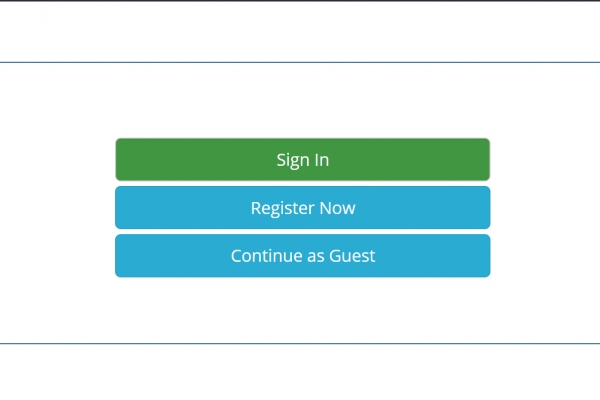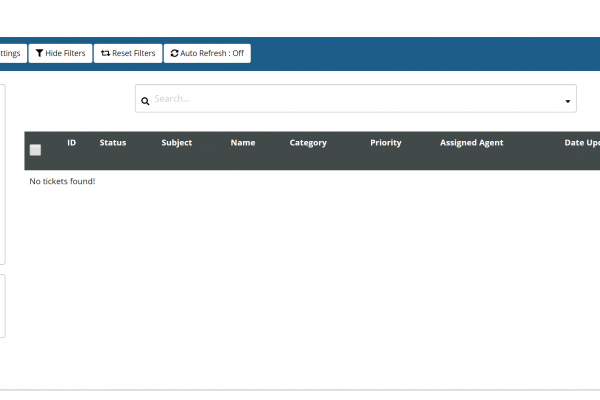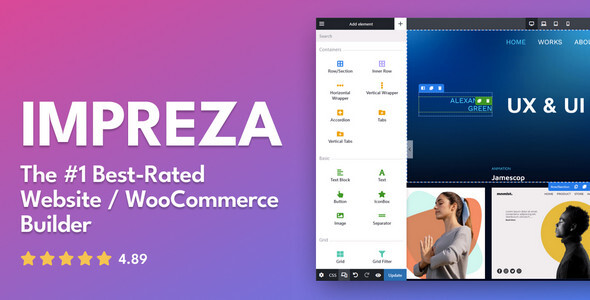PROMEX eCommerce Platform :: WooCommerce Boosted
[vc_row][vc_column width=”2/3″][vc_column_text]
This product and all added features including third party licenses are totally FREE for premium business members.
[/vc_column_text][/vc_column][vc_column width=”1/3″][us_image image=”9154″ size=”full” onclick=”custom_link” link=”url:https%3A%2F%2Fpromex.me%2Fcheckout%2F%3Fadd-to-cart%3D9141|title:Business%20Premium”][/vc_column][/vc_row][vc_row][vc_column width=”1/2″][us_image image=”10336″ size=”full” align=”center” style=”shadow-1″][us_separator][us_image image=”10337″ size=”full” align=”center”][/vc_column][vc_column width=”1/2″][vc_column_text]GAMING DOT ME has decided to take a test drive through out dozens of e-commerce platforms.
*gaming.me is powered and operated by PROMEX
If you have this in common , this please read- on .
- Need an affordable but yet complex all-in-one digital shopping cart solution
- Open source code in case you needed to modify and upgrade
- In demand so features keep on being populated
- Linked to popular frameworks to benefit from open source contributions
- Benefit from thousands of programmers and experts in the field
Well, after hundreds of hours in research and few more in developments and upgrade.
GAMING DOT ME took WooCommerce to brunch, and here is what we came up with.[/vc_column_text][/vc_column][/vc_row][vc_row][vc_column][us_separator][vc_tta_tabs layout=”modern” stretch=”1″][vc_tta_section title=”Wordpress & WooCommerce Boosted” tab_id=”1586200380662-4e7d20e3-cc53″][vc_column_text]
Built on The Impressive WordPress Engine and the Amazing WooCommerce Popular Platform that allowed us to expand its features.
Our first step was to extend its features to be more compatible with both digital, virtual and physical delivery products for your store and ours in this case.
So What features does it have ? Remember to check the other TABS for more expansions.
Button & Price Labels
- Add to Cart Labels – Change text for Add to Cart button by WooCommerce product type, by product category or for individual products.
- Call for Price – Create any custom price label for all WooCommerce products with empty price.
- Custom Price Labels – Create any custom price label for any WooCommerce product.
- Free Price Labels – Set WooCommerce free price product labels.
- More Button Labels – Set WooCommerce “Place order” button label.
Cart & Checkout
- Cart Custom Info – Add custom info to WooCommerce cart page.
- Cart Customization – Customize WooCommerce cart – hide coupon field; item remove link.
- Checkout Core Fields – Customize WooCommerce core checkout fields. Disable/enable fields, set required, change labels and/or placeholders.
- Checkout Custom Fields – Add custom fields to your WooCommerce checkout page.
- Checkout Custom Info – Add custom info to the WooCommerce checkout page.
- Checkout Customization – Customize WooCommerce checkout – hide “Order Again” button etc..
- Checkout Fees – Add fees to WooCommerce cart & checkout.
- Checkout Files Upload – Let customers upload files on WooCommerce checkout.
- Coupon by User Role – WooCommerce coupons by user roles.
- Coupon Code Generator – WooCommerce coupon code generator.
- Empty Cart Button – Add and customize an “Empty Cart” button to the cart page and/or checkout pages.
- EU VAT Number – Collect and validate EU VAT numbers on WooCommerce checkout. Automatically exempt VAT for valid numbers. Add all EU countries VAT standard rates to WooCommerce.
- Mini Cart – Customize the WooCommerce mini cart widget.
- URL Coupons – WooCommerce URL coupons.
Emails & Misc.
- Admin Bar – WooCommerce admin bar.
- Booster Admin Tools – Booster for WooCommerce general back-end tools.
- Booster Custom CSS – Another custom CSS, if you need one.
- Booster Custom JS – Separate custom JS for front and back end.
- Booster Custom PHP – WooCommerce Booster custom PHP.
- Booster Debug Tools – Booster for WooCommerce debug and log tools.
- Booster General Tools – Custom roles tool. Shortcodes in WordPress text widgets.
- Booster Modules By User Roles – Enable/disable Booster for WooCommerce modules by user roles.
- Booster WPML – Booster for WooCommerce basic WPML support.
- Breadcrumbs – Customize WooCommerce breadcrumbs.
- Custom Emails – Add custom emails to WooCommerce.
- Email Options – WooCommerce email options. E.g.: add another email recipient(s) to all WooCommerce emails.
- Email Verification – Add WooCommerce email verification.
- Export Tools – Export WooCommerce orders, customers and products.
- My Account – WooCommerce “My Account” page customization.
- Remove Old Products Slugs – Remove old slugs for WooCommerce products.
- Reports – WooCommerce stock, sales, customers etc. reports.
- Template Editor – WooCommerce template editor.
- User Tracking – Track your users in WooCommerce.
Orders & Shipping
- Address Formats – Set the address format in WooCommerce orders on per country basis. Force base country display.
- Admin Orders List – Customize WooCommerce admin orders list: add custom columns; add multiple status filtering.
- Custom Order Numbers – WooCommerce sequential order numbering, custom order number prefix, suffix and number width.
- Custom Shipping – Add multiple custom shipping methods to WooCommerce.
- Left to Free Shipping – Display “left to free shipping” info in WooCommerce.
- Maximum Products per User – Limit number of items your WooCommerce customers (logged) can buy.
- Order Custom Statuses – Custom statuses for WooCommerce orders.
- Order Min/Max Quantities – Set min/max product quantities in WooCommerce order.
- Order Minimum Amount – Minimum WooCommerce order amount (optionally by user role).
- Orders – WooCommerce orders auto-complete; custom admin order list columns; admin order currency.
- Shipping Calculator Customizer – Customize the WooCommerce shipping calculator on the cart page.
- Shipping Descriptions – Add descriptions to WooCommerce shipping methods on frontend.
- Shipping Icons – Add icons to WooCommerce shipping methods on frontend.
- Shipping Methods by Cities – Set cities to include/exclude for WooCommerce shipping methods to show up.
- Shipping Methods by Current Date/Time – Set date and/or time to include/exclude for WooCommerce shipping methods to show up.
- Shipping Methods by Min/Max Order Amount – Set minimum and/or maximum order amount for WooCommerce shipping methods to show up.
- Shipping Methods by Min/Max Order Quantity – Set minimum and/or maximum order quantity for WooCommerce shipping methods to show up.
- Shipping Methods by Products – Set products, product categories or tags to include/exclude for WooCommerce shipping methods to show up.
- Shipping Methods by Users – Set user roles or membership plans to include/exclude for WooCommerce shipping methods to show up.
- Shipping Options – Hide WooCommerce shipping when free is available. Grant free shipping on per product basis.
- Shipping Time – Add delivery time estimation to WooCommerce shipping methods.
Payment Gateways
- Custom Payment Gateways – Add multiple custom payment gateways to your WooCommerce store.
- Payment Gateways by Country or State – Set countries or states to include/exclude for WooCommerce payment gateways to show up.
- Payment Gateways by Currency – Set allowed currencies for WooCommerce payment gateways to show up.
- Payment Gateways by Shipping – Set “enable for shipping methods” for WooCommerce payment gateways.
- Payment Gateways by User Role – Set user roles to include/exclude for WooCommerce payment gateways to show up.
- Payment Gateways Currency Converter – Currency converter for WooCommerce payment gateways.
- Payment Gateways Fees and Discounts – Enable extra fees or discounts for WooCommerce payment gateways.
- Payment Gateways Icons – Change icons (images) for all WooCommerce payment gateways..
- Payment Gateways Min/Max Amounts – Add min/max amounts for WooCommerce payment gateways to show up.
- Payment Gateways per Product or Category – Show gateway only if there is product of selected category in WooCommerce cart.
PDF Invoicing & Packing Slips
- PDF Invoicing and Packing Slips – WooCommerce Invoices, Proforma Invoices, Credit Notes and Packing Slips.
Prices & Currencies
- All Currencies – Add all world currencies to your WooCommerce store; change currency symbol.
- Bulk Price Converter – Multiply all WooCommerce products prices by set value.
- Currency Exchange Rates – Automatic currency exchange rates for WooCommerce.
- Currency for External Products – Set different currency for external WooCommerce products.
- Currency per Product – Display prices for WooCommerce products in different currencies.
- Multicurrency (Currency Switcher) – Add multiple currencies (currency switcher) to WooCommerce.
- Multicurrency Product Base Price – Enter prices for WooCommerce products in different currencies.
- Offer Your Price – Let your customers to suggest their price for products in WooCommerce.
- Price based on User Role – Display WooCommerce products prices by user roles.
- Price Formats – Set different WooCommerce price formats for different currencies. Set general price format options.
- Prices and Currencies by Country – Change product’s price and currency automatically by customer’s country.
- Product Open Pricing (Name Your Price) – Let your WooCommerce store customers enter price for the product manually.
- Product Price by Formula – Set formula for automatic WooCommerce product price calculation.
- Shop Global Discount – Add global discount to all WooCommerce products.
- Wholesale Price – Set WooCommerce wholesale pricing depending on product quantity in cart (buy more pay less).
Products
- Add to Cart Button Visibility – Enable/disable WooCommerce Add to Cart button globally or on per product basis.
- Admin Products List – Customize WooCommerce admin products list.
- Bookings – Add bookings products to WooCommerce.
- Cost of Goods – Easily track your profit margins by saving your product costs in WooCommerce.
- Cross-sells – Customize WooCommerce cross-sells products display.
- Crowdfunding – Add crowdfunding products to WooCommerce.
- Custom Product Tabs – Add custom product tabs – globally or per product. Customize or completely remove WooCommerce default product tabs.
- Product Add to Cart – Redirect customers to a page on your site after adding a product to their cart. Automatically add products to your customer’s cart. Display radio buttons instead of drop box for variable products. Disable quantity input. Disable add to cart button on per product basis. Open external products in new window.
- Product Addons – Add (paid/free/discount) addons to WooCommerce products.
- Product Availability by Date – WooCommerce product availability by date.
- Product Availability by Time – WooCommerce product availability by time.
- Product Bulk Meta Editor – Set WooCommerce products meta with bulk editor.
- Product Custom Visibility – Display WooCommerce products by custom param.
- Product Images – Customize the visibility of product images, thumbnails and WooCommerce sale flashes on product listings.
- Product Info – Add even more product info to WooCommerce categories and single product pages.
- Product Input Fields – Add custom input fields to all WooCommerce products or per product.
- Product Listings – Change WooCommerce display options for shop and category pages: show/hide categories count, exclude categories, show/hide empty categories.
- Product MSRP – Save and display product MSRP in WooCommerce.
- Product Visibility by Country – Display WooCommerce products by customers country.
- Product Visibility by User Role – Display WooCommerce products by customer’s user role.
- Products per Page – Add “products per page” selector to WooCommerce.
- Products XML Feeds – WooCommerce products XML feeds.
- Related Products – Change displayed WooCommerce related products number, columns, order, relate by tag and/or category, or hide related products completely.
- Sale Flash – Customize WooCommerce products sale flash.
- SKU – Generate WooCommerce SKUs automatically.
- Sorting – Add more WooCommerce sorting options or remove all sorting including default.
- Stock – WooCommerce products stock management.
- Tax Display – Customize WooCommerce tax display.
- Upsells – Customize WooCommerce upsells products display.
- User Products – Let users add new WooCommerce products from frontend.
[/vc_column_text][/vc_tta_section][vc_tta_section title=”Order Control” tab_id=”1586200380704-55c8518a-fb16″][vc_column_text]
WooCommerce Order Control
This was a minor yet heavily relied on fix and modifcation.
WooCommerce automatically completes orders for virtual-downloadable products after successful payment, but it won’t autocomplete other orders, as you may need to take actions between when the order is processed and completed. If you sell shippable products, you probably need to ship them before completing the order. If you sell virtual products like services, you probably have to do something between when the order is paid and completed.
However, this isn’t the case for all stores, and you may not need to take any action between when an order is paid for and completed. For example, you may want to auto-complete virtual orders, or even those with products that aren’t virtual or downloadable. Likewise, you may not want any orders to automatically complete at all.
In this case, you can use the WooCommerce Order Status Control extension to get greater control over when paid orders are automatically completed.

Want to completely prevent orders from automatically completing? You can use this plugin to block virtual + downloadable orders from going right to “completed”.
Need to automatically complete more orders than WooCommerce does by default? You can do that, too. Normally, orders with successful payment are updated from ‘pending’ to ‘processing’. Once the order is processed, you have to manually complete it. If your shop takes a large number of orders that don’t require action while the order is processing, updating the order status to complete for each of those orders is a time commitment that you can instead streamline.
WooCommerce Order Status Control can automatically mark paid orders as ‘complete’ instead of ‘processing’, completing skipping the ‘processing’ status. All it takes is 1 minute to setup and you never have to worry about changing order statuses for paid orders again.

You can automatically complete paid orders that only contain virtual items, or you can opt to automatically complete all paid orders in your shop, regardless of what type of product the order contains.
How to Get Started
- Purchase and download the extension 🙂
- Upload and install into your WooCommerce store
- Go to WooCommerce > Settings > General, and scroll down to Order Status Control
- Choose from All Orders to change the order status to “completed” after successful payment for all orders, Virtual Orders to change the order status only for orders that contain all virtual products, or None to stop auto-completion all together.
- That’s it! Sit back and enjoy automated order statuses!
Need any more reason to buy? When you purchase a SkyVerge-developed extension, you’re getting the highest quality extensions for your WooCommerce store. Gain peace of mind by knowing that when you purchase our products, your store’s performance is as important to us as it is to you.
[/vc_column_text][/vc_tta_section][vc_tta_section title=”Credit Coupons” tab_id=”1586201124408-92e24a78-8316″][vc_column_text]Store Credit ( Pre- Wallet Idea ) – Simple crediting solution
WooCommerce Store Credit
Boost your sales with store credit style coupons
Creating a loyal customer base that are true fans of what you do and will support you along the way is what keeps many store owners awake at night. Being the top of mind choice for a significant group of customers is the final goal of marketers and business owners, no matter if we talk about Amazon or the flower shop in your street.
Personal coupons and gift vouchers are a good way to hack through the mental resistance of your clients and get them to buy your products. No matter if you focus on offering free shipping or a big discount, Store Credit coupons are truly effective to get your sales going and WooCommerce Store Credit is the simplest, most effective way to do it.

Why use Store Credit?
- Store Credit coupons allow your customers to make multiple purchases until the credit is exhausted or the coupon expires.
- It can be used as a personal refund or compensation card in case there’s a problem with your product or service.
- A non-percentage coupon that allows you to measure the amount of credit spent in every incentivized purchase.
- Send unique store credit voucher to your customers by email.
- Allow multiple purchases per coupon or limit its usage.
- The coupon can be restricted to specific products or product categories.
- Optionally, the Store Credit coupons can also apply a discount to the shipping costs.
- Apply the coupon either before or after taxes so you adapt to the regulation of your country or state.
- Allow your customers to apply the store credit coupons in combination with other coupons or individually.
- The coupon discount is reflected in all order elements (items, taxes, shipping costs, etc), not just the order total.
- Easy integration with external tools such as ERPs.
- Customize emails, coupon code format, etc.
Tailored gift cards and Store Credit coupons win you clients, one by one
Personalize the relationship with your customer via email with a unique gift voucher that can be used at your shop. The simplest and most cost-efficient way to create and manage Store Credit coupons so you can increase your sales and build customer loyalty.

[/vc_column_text][/vc_tta_section][vc_tta_section title=”Full Wallet Solution” tab_id=”1586201366440-c39d37e9-580c”][vc_column_text]
What if a Simple crediting system is not enough ? No worries, we thought it is not enough for us too !
Wallet allows customers to store their money in a digital wallet. The customers can use the wallet money for purchasing products from the store. The customers can add money to their wallet using various payment methods set by the admin. The admin can set cashback rules according to cart price or product. The customers will receive their cashback amount in their wallet account. The admin can process refund to customer wallet.
- Wallet system works just like any other payment method.
- Set wallet system payment method title for the front-end.
- The customers can use various payment methods to add money.
- The admin can process refund using the wallet money.
- Customers will earn cashback according to cart price, product or product category wise.
- Customers can made partial payment.
- Set cashback amount calculation using fixed or percent method.
- From the backend, the admin can view the transaction history.
- Customers receive notification emails for every wallet transaction.
- The admin can adjust the wallet amount of any customer from the backend.
- Users can transfer wallet amount to other user.
- Shortcode
woo-walletwhich will display user wallet page. - Built with a REST API
- Convert WooCommerce coupon into cashback.
- Support WordPress Multisite Network
- Supports multiple languages translations.
- Supports WooCommerce Subscriptions.
- Supports WooCommerce Multivendor Marketplace by WC Lovers.
- Supports WC Marketplace.
- Supports Dokan Multivendor Marketplace.
After the plugin installation, the admin needs to do the payment method configuration. Set the title and select allowed payments for adding money.
Now for enable cashback rules, navigate to WooWallet > Settings > Credit. Now setup cashback rule according to your requirement. If cashback rule set to product wise then admin will have an option to add cashback rule for each product.
On the front-end, the customers can log in to the store and go to wallet page from My Account. Enter the amount to add and then complete the checkout process just like any other product purchase.[/vc_column_text][/vc_tta_section][vc_tta_section title=”Bulk Import/Export” tab_id=”1586201713904-fc89b8d4-9083″][vc_column_text]
Native WooCommerce functions do not bulk import export but do not fret !
Native WooCommerce Data Fields & Custom Field Import
Import various Product Types including Simple, External, Virtual, Variable, Variations, Simple Subscriptions and more!
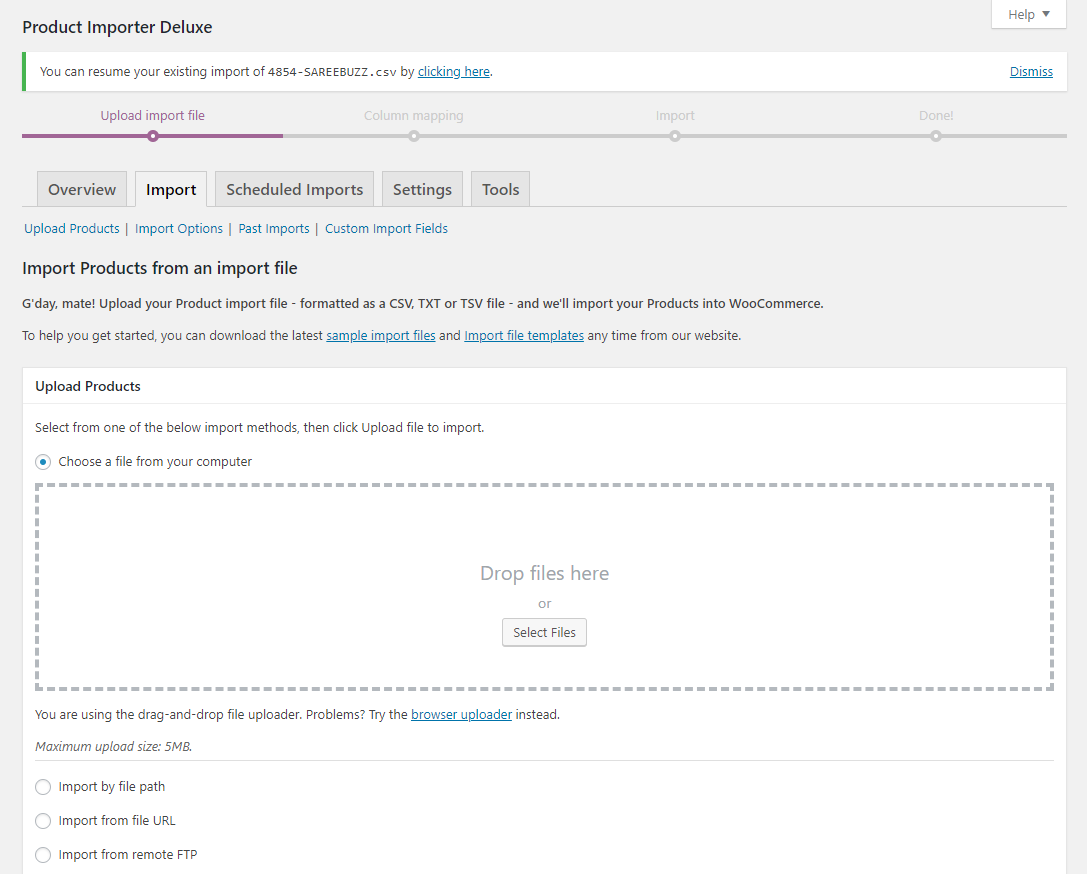
Bulk import Products into WooCommerce with ease
Simply save your Excel, Google Sheets or any other datasheet as a CSV file and you are ready to go.
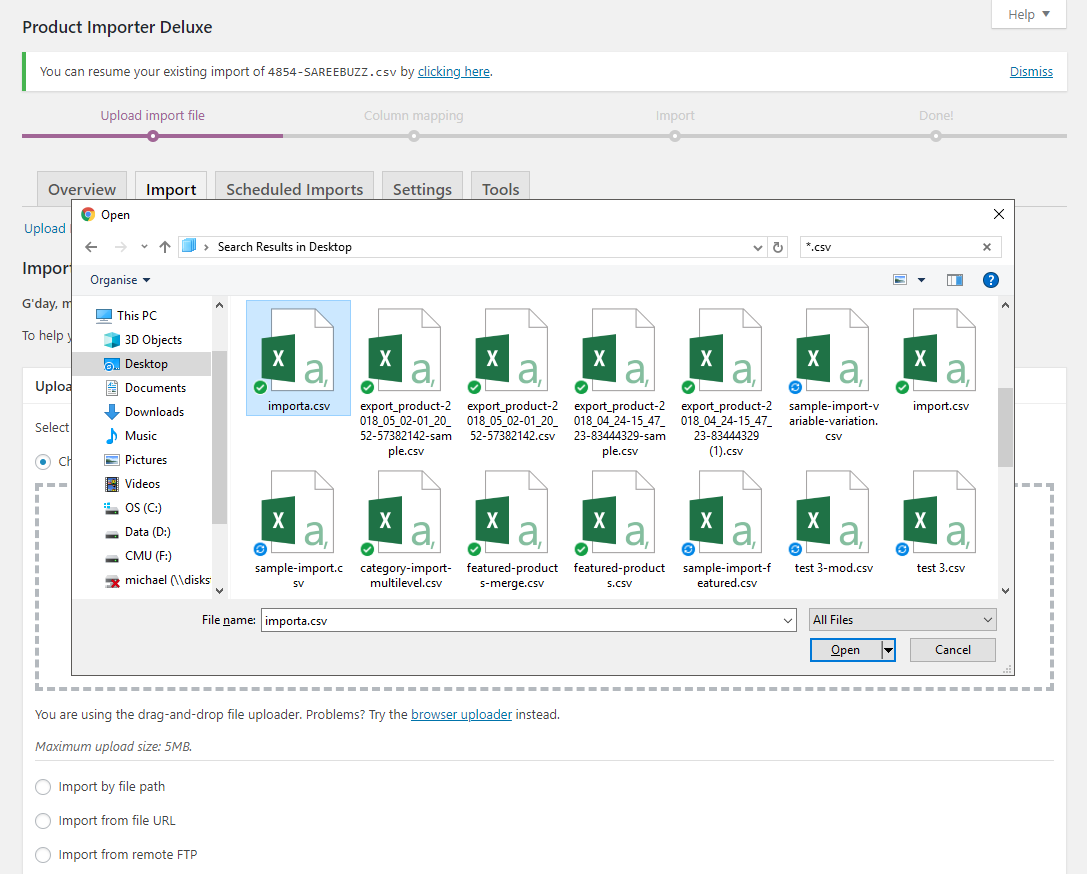
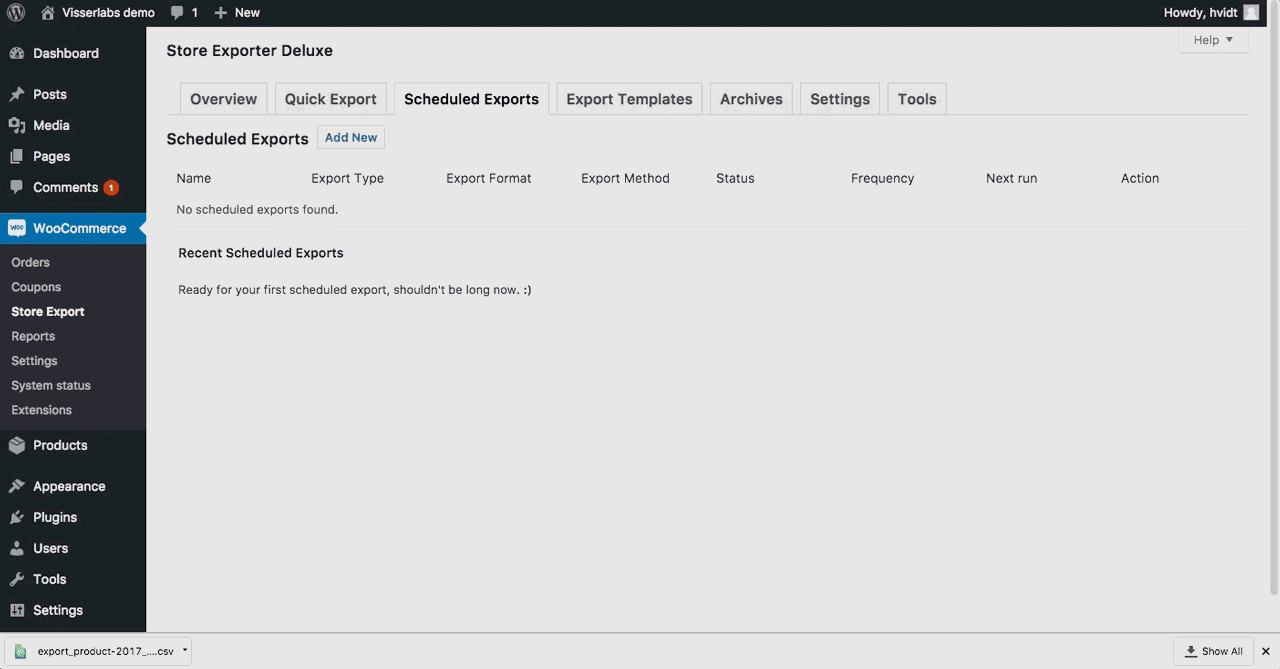
[/vc_column_text][/vc_tta_section][vc_tta_section title=”Serial Numbers – Key Codes & Gift Cards Managements” tab_id=”1586202041693-0dfa8eab-771d”][vc_column_text]
A Game Changer !
WooCommerce Digital Key Manager is a WordPress plugin that allow you to easily sell license keys, pin codes, gift card or license your digital product with predefined or automatically generate license keys.
Add License keys
License keys can be either added manually one by one or imported from txt or csv file
and assigned to a product.
The license keys support extra details that can be left empty if not needed like an Expiration Date or a Validity(The number of day the license key is valid for)
The License Key text field support Multi line text and HTML code, so you can make the license key appear as a clickable link en the emails for example.
Import the license keys from a .txt or .csv and select the product to assign them to using this form.
The imported license keys will look like this
License key Delivery
After purchase your customer will receive an Email that contain the bought products and the assigned license keys.
Purchased license keys can also be seen in user account page in the order history for the customers and in WooCommerce order page for the admin.
License keys Management
So that you can keep track of your license keys the plugin provides a detailed interface with all your license keys and their status after purchase more details are added to the license keys like the buyers name and email address.
Image License Keys
You can add images to be delivered as license keys, for example if you want to deliver your license keys as QR Codes or for any other reason you want to deliver an image you can easily add the image as a license keys and is will be delivered like a normal license key.
Resend License keys
If due to some reason the license keys email is not sent to the customer you can resend the license keys email manually form WooCommerce order page.
Reassign License Keys
You can replace or delete the license keys assigned to an order after purchase
WooCommerce Product Variation support
You can assign a different set of license keys for each variation.
Notifications
So that you don’t lose track of your license keys sales the plugin provide a notification center that will alert the admin to add more license keys for the product that are about to be sold out. the minimum number of available license keys available before stating to get notifications can be set in the plugin setting page.
There is 2 type of notifications, alerts in admin dashboard and through emails sent to the admin.
Email Templates
You can customize the license keys email using multiple shortcodes like buyer first and last name, email address, site url and much more.
Encryption
License keys are encrypted using 2 secret keys that you can set in the plugins setting page before they are stored in the database to protect your license key from being stolen is something happens to your website
Import/Export
Export the license keys for a certain status and a certain product or export all the license keys to a csv file. for example export all the sold or all the available license keys for a product
Export license key generator settings
Export plugin setting: If you are running multiple websites you wont need to configure the plugin for each website individually, export the setting and import them on the other websites.
Exported license keys and license key generator settings can imported again so you can backup you data.
Edit/Delete
You can edit the license keys in the admin dashboard.
Bulk delete/change
You can delete or change the status of multiple license keys at the same time.
Third Party Plugins Support
License Manager have full support for:
WooCommerce Product Bundles: You can license the products in a bundle individually or license the whole bundle
WooCommerce Custom Order Status: This plugin support all order status even the custom ones added by third-party plugins
License Key Generator
Licensing your digital product have never been easier, enabling the license key generator for a product will make the plugin generate a license key for your customer after purchase. then the generated license key will be added to the license keys list
The generator can be configured to add a prefix and a suffix the generated license keys, and you can also set the length ans the number of chunks of the generated license keys.
This is an example of license keys generated with the following settings:
DEV-154F-57AC-98BC-A5F7-55AA-USR
Prefix: DEV-
Suffix: -USR
Chunk length: 4
Number of chunks: 5
Tracking API
Implement the API in your digital products to make sure users a using a licensed copy of your software.
Using a simple POST request you can activate/deactivate a license key, get license key status(valid, invalid or expired), or get license key details.
A detailed example of how to use the API is available in the documentation. The Implementation of the API requires programming skills
License Keys Delivery Options
You can make your customers see the purchased license keys on your website instead of them delivered in the email
[/vc_column_text][/vc_tta_section][vc_tta_section title=”Full Ticketing Support” tab_id=”1586205233340-167a911f-2a50″][vc_column_text]
Now you need to service your clients, don’t go paying high fees for 3rd party support ticketing software.
Core Features
Unlimited Tickets
There is no limit to number of tickets can be created in our Free Version. You can create unlimited tickets from Front-End.
Unlimited Agents
There nothing like per-agent charges as other third party support services. You can create Unlimited Agents to divide your workload of replying tickets.
Ajax functionality
100% ajax functionality allows it work fast and smooth.
Guest Tickets
Your visitors can create ticket without having user account on your site.
Custom Fields
You can create many types of custom fields like text-fields, drop-down, textarea, etc.
File Attachments
You can attach any file along with your ticket description. Apart from this, there is custom field type attachment is available which you can use to create any number of attachment fields.
Private Notes
You need to add private notes in the ticket for additional internal information which user should not see. Private note is available for your agents to leave private note for the ticket.
Ticket Form
Customizable ticket form allows you design your ticket form as per your requirement. You can even add extra information about any field to explain more about the ticket field to the users.
Agentonly Fields
Sometimes you need some custom fields visible only for agents. Agentonly fields allows you to do so. You can create such fields just like custom fields with all possible field types.
Filter Labels
Filter labels allow you to filter tickets quickly. Available labels are All, Unassigned, Unresolved, Mine, Deleted, etc.
Ticket Search
You can use search field to search almost anything except ticket replies. You can search status, id, customer or any custom field with this.
Advanced Filter
You can filter specific data using advanced filter such as show only open and pending tickets of assigned to admin for tickets created within specific range etc.
Save Filter
You can save filters for future use if you need them on often. Any user has access to this functionality including agent, users etc.
Email Notifications
Customization email notification templates available for you to customize as per your requirement.
Multi-site Ready
Works well on multi-site network without any issues.
- Email Piping
- Assign Agent Rules
- Canned Reply
- Export Tickets
- FAQ Integrations
- Knowledgebase Integrations
- SLA
- Usergroups
- Agentgroups
- Satisfaction Survey
- Automatic Close Tickets
- Schedule Tickets
- Reports
- WooCommerce Integration
- EDD Integration
- Timer
- Print Ticket
- Gravity Forms
- Private Credentials
[/vc_column_text][/vc_tta_section][vc_tta_section title=”Knowledge Base” tab_id=”1586205973148-fc182856-0939″][vc_column_text]
Don’t forget to add a knowledge base section to your shop, we didn’t forget to include the feature.
KNOWLEDGE BASE PLUGIN FEATURES
- Drag & Drop Knowledge Base Posts and Categories Reorder Easily reorder knowledge base posts and categories.
- Customs Slugs Set custom knowledge base article and category slugs.
- Breadcrumbs Display breadcrumbs on category and single pages.
- Article File Attachments
- Gutenberg Block Ready
- Live Search
- Placeholder Set search field placeholder.
- Hide Button Option to hide search submit button.
- Placement Select where you want search displayed (main page, category page, single page).
- Disable Live Search Option to disable live search results.
- Main Knowledge Base Page
- Columns Display categories in 2, 3, or 4 columns.
- Category Style Display knowledge base categories as boxes or lists.
- Sidebar Display horizontal sidebar.
- Page Content Display additional content on main page.
- Reorder Layout Drag & drop order search, knowledge base content, page content and sidebar on the page.
- Category Count Display article count in category link.
- View All Link Display “View All” link for each knowledge base category.
- View All Count Display knowledge base article count in “View All” link.
- Category Icons Display knowledge base category icons and set unique icon for each category, chose from 200 icons.
- Category Font Size Set category title font size.
- Single Page
- Meta Display / hide article updated date, category and tags meta info.
- Comments Enable comments on single page. This feature requires theme support!.
- Voting
- Public or Member Only Voting Easily set who can post a vote on your site from the plugin´s settings page.
- Disable Dislike Button
- Set Vote Icons Set like and dislike icons.
- Reset Votes Reset votes for a single knowledge base article or all articles.
- Widgets
- Articles Display list of articles, order by date, title and filter by tag or category.
- Categories Display list of knowledge base categories
- Article List Shortcode Display list of articles, order by date, title and filter by tag or category. Easy to use shortcode generator.
- Set Category Link Color
- Set Article Link Color
- Responsive Design Fully responsive design and optimized for small screen device such as iPhone, iPad.
- Documented All our product come bundled with step by step documentation covering installation and setup.
- Translation Ready All our products are translation ready using Poedit tool with instructions in bundled documentation.
- Set Link Color Using Color Picker
- Regular Product Updates Knowledge Base Plugin is kept up to date with the latest WordPress versions.
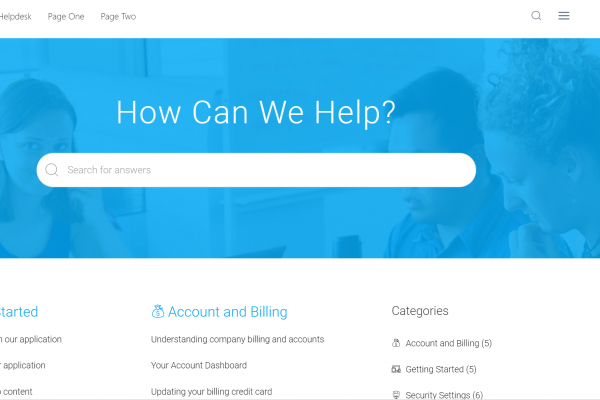
[/vc_column_text][/vc_tta_section][vc_tta_section title=”Security and Full Access Control List over Roles and Permissions” css=”%7B%22default%22%3A%7B%22background-color%22%3A%22%23ffffff%22%7D%7D” tab_id=”1586206364283-e7a5e064-b9ad”][vc_column_text]
Last but not least, control everything – and everyone accessing your website’s dashboard.
Administrators, Moderators, Vendors and Support Roles … function per function if needed.
WordPress security and access controls are probably the most challenging tasks because WordPress CMS (Content Management System) was never designed to hide/protect anything. That is why AAM becomes so valuable for website administrators. It allows managing access to your website for any role, individual user, visitors or everybody at once.
By default, AAM is available only for users with the Administrator role and when navigating to the AAM page, you should be able to see something similar to what is shown on the screenshot below. You can learn more about the AAM page from the plugin reference page on the “AAM UI Interface” section.

FYI! You have the ability to define granular access to all the AAM features and grant access for none-administrator users to desired functional aspects of the plugin. For more information, refer to the “How to manage access to AAM page for other users” article.
At first, it might be overwhelming looking on the AAM page, however, the full picture will get much more clear when you learn a few core AAM concepts listed below.
WordPress is the collection of resources
Everything in the WordPress CMS can be considered as a resource that somebody is trying to access or change. For example, the backend menu consists of menus and sub-menu items; any frontend menu is the collection of posts, pages, custom links or categories; media attachments in the Media Library or post tags on the “Posts->Tags” page. All the mentioned things are more are individual resources that you have the ability to manage access to and that is where AAM comes in play and helps you to define granular access rules.

The “Main Panel” is the place where you can find the list of all available services that AAM offers to manage access to a different type of resources like backend menu, metaboxes & widgets or posts & terms.
AAM comes with two types of services: those that manage access to the WordPress resources (post, pages, widgets, capabilities, etc.) and others that manage various options (login redirect, 404 redirects, access denied redirect, etc.)
Resources are accessible by somebody
It makes no sense to have resources if they are not designed to be accessed by somebody. It can be either a user or programmatic application. We call them subjects or somebody/something that perform certain actions upon resources and WordPress core defines two types of subjects: users and roles.
On top of that AAM introduces also two other types of subjects: visitors are users that do not have an identity (unauthenticated users) and default subject from which all users, roles and visitors inherit access settings. This way you have no limits defining access settings the way you need it.

AAM Users/Roles Manager Panel is the place where you can navigate between different types of subjects. Each time you select any particular roles, user, visitors or default, the entire AAM “Main Panel” reloads and allows you to define access settings for the selected subject.
Under the hood, AAM automatically propagates all the settings, down the hierarchical chain to the user or visitor.
Everything in the WordPress core is connected
From the above, you already learned that a WordPress website is the collection of resources and subjects that request access to them. Now it is time to learn that they all are related to each other one way or another. For example, a page can have a parent page, a post always has an author that is technically a user that has a parent role or multiple roles. It is important to understand the nature of those relationships to properly propagate access settings and some of them are extremely complex.
Luckily AAM comes with a one-of-a-kind access settings inheritance mechanism that takes into consideration all known WordPress core relationships between website resources, users and roles. This opens infinite possibilities to define access and security controls your way without compromising a website performance. You can scale your website to hundreds of thousands of users or millions of posts and AAM can handle them all.
To learn more about AAM access setting inheritance mechanism, refer to the “AAM Access Settings Inheritance Mechanism” article. Only by mastering this core AAM concept, you will discover the true power of this plugin.
Access control can be an artifact
While the vast majority of website administrators can be fully satisfied with AAM UI and flexibility that it offers. Those individuals and companies that take access management to the next level, know that any UI will be limited to the most common use-cases and it is really easy to make a human-error while managing access. Even if AAM will offer a fully-blown monitoring tool that tracks all the changes to the access settings, it still will not capture the intent for the changes.
FYI! Indeed, while AAM UI is comprehensive and complex, it is still limited to the most common use-cases and we are very resistant to adding new UI elements to avoid overwhelming interface with options.
We quickly realized that it would not be possible to give powerful, flexible and at the same time cohesive framework just with AAM UI. That is why in AAM 5.7.0 and higher, we’ve introduced the concept of Access Policies. It is a JSON-based document that allows you to define access settings to any WordPress resources and with the power of Conditions, you basically have no limit defining access triggers based on any condition (e.g. restrict access to the backend area for anybody if it is Sunday or redirect visitor to the login page if she comes from South America).
To simplify the administrative work, we even launched the Access Policy Hub where you can find ready-to-use access policies for the most requested use-cases.
Try! The “Private WordPress Website” policy makes your website completely private and redirects all visitors to the login page.
Because each access policy is a separate post type, any changes to a policy are stored as revisions and you can track what was changed and by who.
 [/vc_column_text][/vc_tta_section][/vc_tta_tabs][/vc_column][vc_column][/vc_column][/vc_row][vc_row][vc_column][vc_column_text][/vc_column_text][/vc_column][/vc_row]
[/vc_column_text][/vc_tta_section][/vc_tta_tabs][/vc_column][vc_column][/vc_column][/vc_row][vc_row][vc_column][vc_column_text][/vc_column_text][/vc_column][/vc_row]


